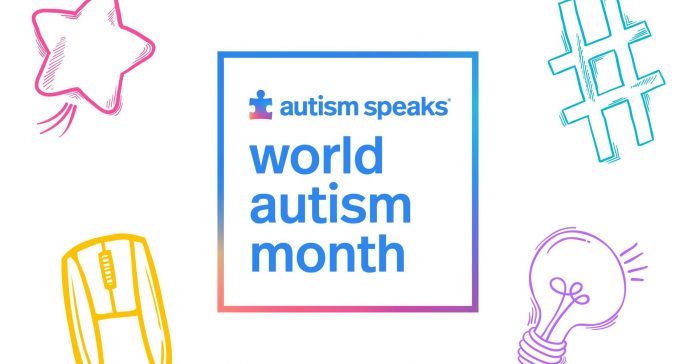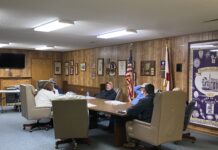MONTGOMERY, Ala. – Together, we can create a kinder, more inclusive world. Join the Alabama Department of Mental Health (ADMH) as it recognizes the month of April as Autism Awareness and Acceptance Month and World Autism Day on April 2. Throughout the month, ADMH will spread awareness, promote acceptance and ignite change to foster inclusivity for those affected by autism. This year’s theme, “Light up with Kindness,” encourages individuals to help create a world where all people with autism, across the spectrum and throughout the life span, reach their full potential.
Many have heard of Autism Spectrum Disorder (ASD), but far too few know what it’s like to have autism – and experience both the strengths and challenges. According to Autism Speaks, a leading national organization on advocacy, ASD refers to a broad range of conditions characterized by challenges with social skills, repetitive behaviors, speech and nonverbal communication. The Centers for Disease Control state autism affects an estimated one in 54 children in the United States.
The ADMH Office of Autism Services values the uniqueness of all individuals and strives to provide comprehensive supports to individuals with autism and their families.
“A cornerstone of autism services is face-to-face interaction which was halted due to the impacts of COVID-19 this past year, but we are moving back into traditional service settings when possible,” explained Anna McConnell, state autism coordinator.
McConnell continued, “Using a new and energized approach, along with strategic planning, Autism Services has also built relationships with community partners to strengthen supports for individuals and families in settings where our services are not provided, such as schools.”
This past year has brought several challenges and to help the community. ADMH Autism Services provided information and referrals to approximately 500 callers, participated in numerous education, planning, and outreach projects across the state and enrolled nearly 100 clients. The office has built many valuable relationships with outside providers to serve individuals and families, collaboratively and effectively.
“We continue to enroll more rehabilitation service providers and refer clients for more of our services, such as therapeutic mentoring, in-home therapy and behavior support,” said McConnell.
Throughout other parts of the state, Autism Services has participated in drive-through outreach events in partnership with area Regional Autism Networks (RANs), collaborated with other state stakeholders like Alabama Early Intervention System (AEIS) for program development, and consulted with in-state colleges and universities on expanding training programs and provider capacity across Alabama.
The Regional Autism Networks (RAN) are housed at Auburn University, University of Alabama, University of Alabama at Birmingham, University of Alabama in Huntsville and University of South Alabama. Each Regional Autism Network strives to connect people with ASD, their families, educators and service providers to the information and/or services that best meet their needs.
In addition, ADMH also leads the Alabama Interagency Autism Coordinating Council (AIACC) which was created to meet the urgent and substantial need to develop and implement a statewide comprehensive, coordinated, multidisciplinary, interagency system of care for individuals with autism spectrum disorder and their families.
Signs of autism usually appear by age 2 or 3. Some associated development delays can appear even earlier, and often, it can be diagnosed as early as 18 months. Research shows that early intervention leads to positive outcomes later in life for people with autism. Over the years, the number of individuals diagnosed with ASD has increased.
To participate in Autism Awareness Month and learn about ways to support individuals and families with autism, visit www.autismspeaks.org/wam where you can:
- Commit to take action toward a kinder world.
- Connect with kindness by sharing resources and stories on social media to increase global understanding and acceptance.
- Lead with kindness by advocating to help advance policies that positively impact the autism community or starting a kindness campaign at work.




























